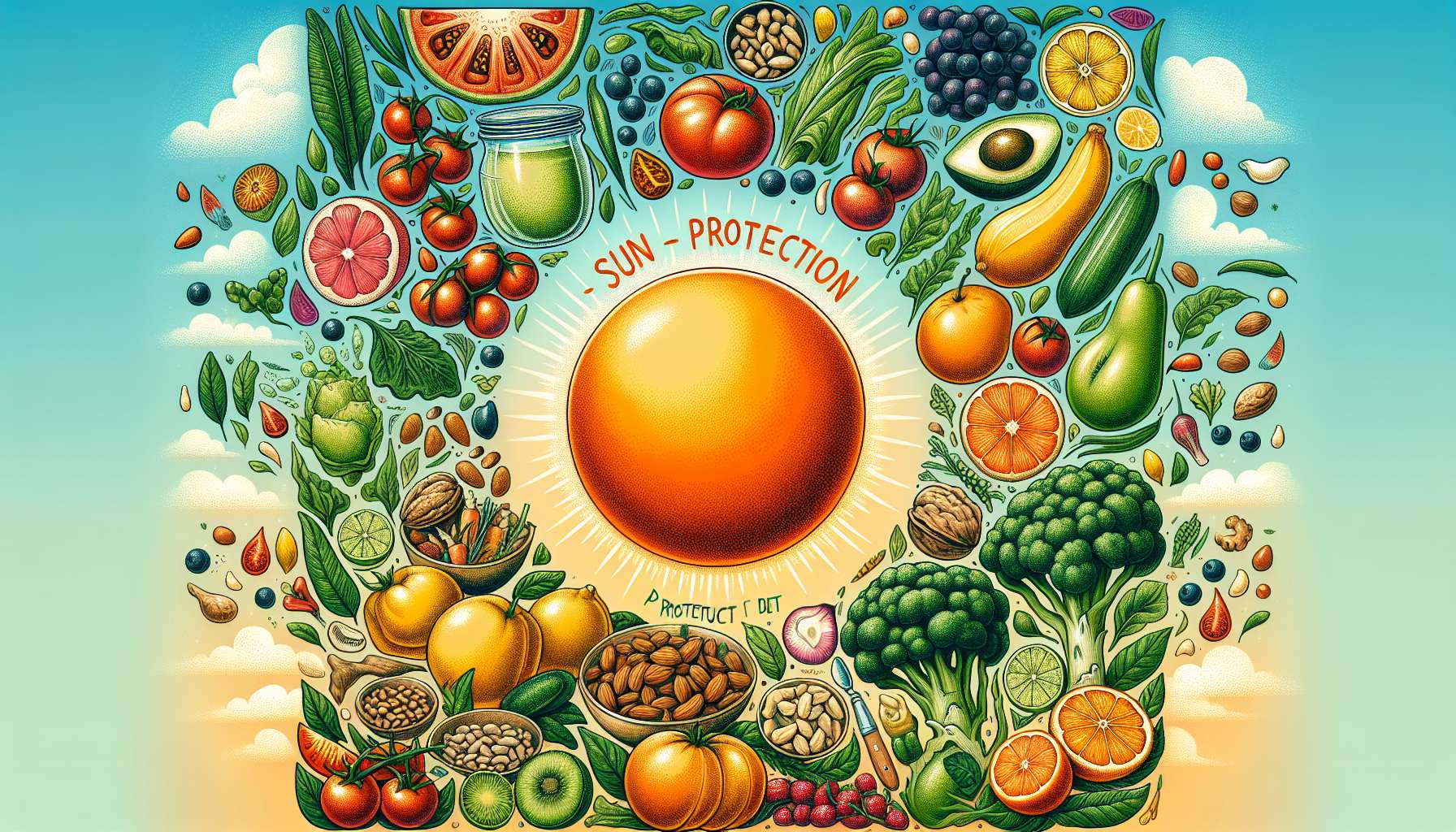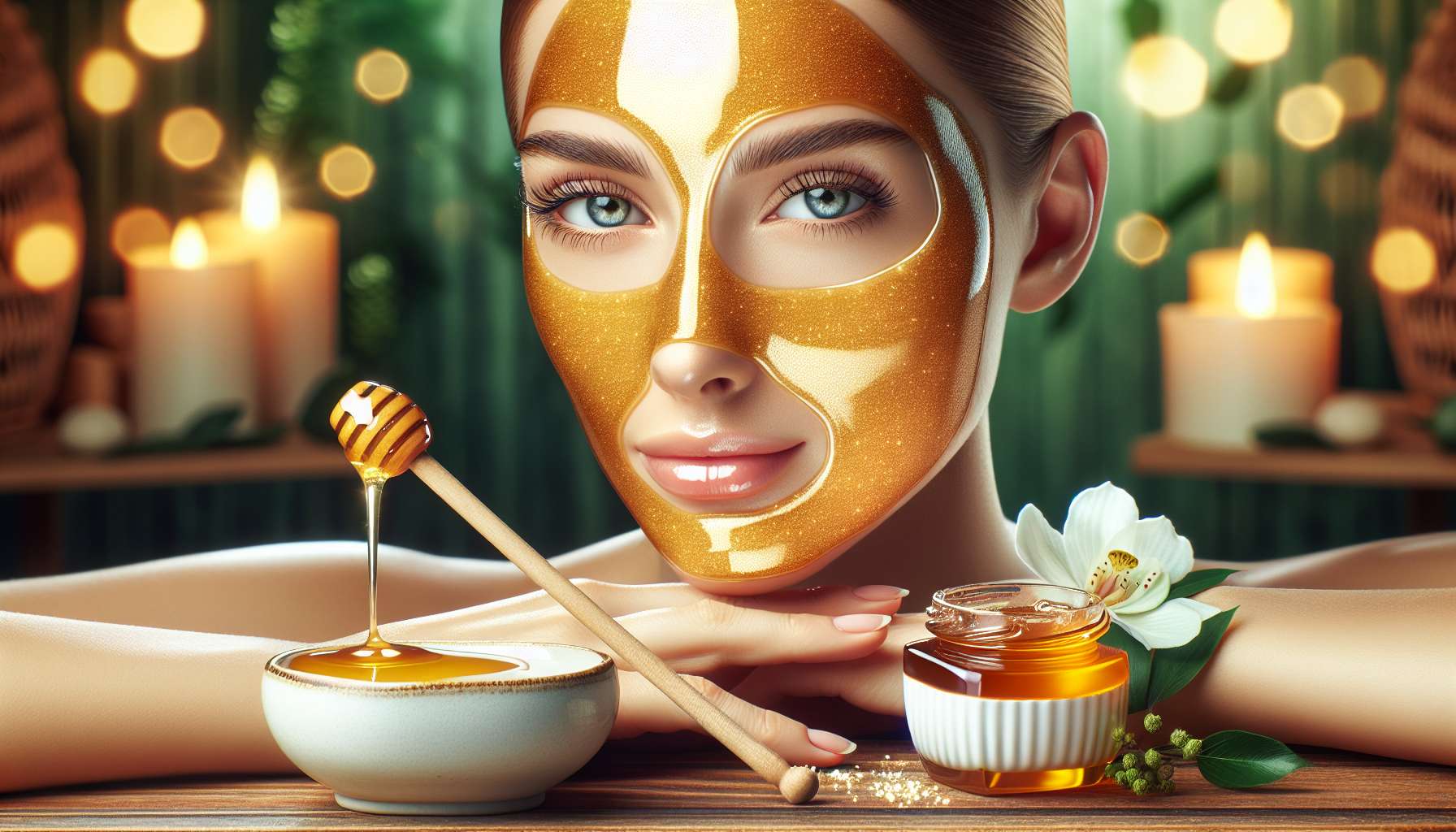Sun Protection Diet: A Comprehensive Guide to Protecting Your Skin from Within
Introduction
As we bask in the warmth of the sun’s rays, it’s easy to forget that the same sun that gives us life can also harm our skin. Sunburn, premature aging, and even skin cancer are all potential risks of prolonged sun exposure. While sunscreen is a crucial tool in protecting our skin, did you know that what you eat can also play a significant role in sun protection?Welcome to the world of the Sun Protection Diet, where the foods you consume can help shield your skin from the damaging effects of UV radiation. In this article, we will delve into the science behind this concept, exploring how certain nutrients and antioxidants can boost your skin’s natural defenses, reduce inflammation, and promote overall skin health.Are you ready to discover how your diet can be your secret weapon against sun damage? Let’s explore the fascinating world of the Sun Protection Diet together.
The Role of Nutrition in Sun Protection
When it comes to protecting your skin from the sun, we often focus on external measures like sunscreen and protective clothing. While these are essential tools in sun protection, the role of nutrition should not be overlooked. The foods we eat contain a wide array of vitamins, minerals, and antioxidants that can help fortify our skin against UV damage from the inside out.
Vitamin C: The Skin’s Best Friend
One of the key players in the Sun Protection Diet is vitamin C. This powerful antioxidant is known for its ability to neutralize free radicals, which are unstable molecules that can damage the skin and accelerate aging. Vitamin C also plays a crucial role in collagen production, helping to keep the skin firm and youthful.Incorporating vitamin C-rich foods into your diet, such as citrus fruits, strawberries, bell peppers, and kiwi, can help boost your skin’s natural defenses against UV radiation. Additionally, vitamin C has been shown to have anti-inflammatory properties, which can help soothe sunburned skin and reduce redness.
Vitamin E: The Protector of Skin Cells
Another essential nutrient for sun protection is vitamin E. Like vitamin C, vitamin E is a potent antioxidant that helps protect the skin from oxidative stress caused by UV exposure. It works by scavenging free radicals and preventing them from damaging skin cells.Foods rich in vitamin E include almonds, sunflower seeds, spinach, and avocados. By incorporating these foods into your diet, you can help shield your skin from the harmful effects of UV radiation and maintain a healthy, glowing complexion.
Carotenoids: The Colorful Defenders
Carotenoids are a group of pigments found in fruits and vegetables that have been shown to have protective effects against UV radiation. These compounds, which include beta-carotene, lycopene, and lutein, act as antioxidants in the body and help reduce inflammation and oxidative damage in the skin.Foods high in carotenoids, such as carrots, sweet potatoes, tomatoes, and leafy greens, can help enhance your skin’s natural defenses against sun damage. These colorful defenders not only protect your skin but also contribute to a vibrant, healthy complexion.
Omega-3 Fatty Acids: The Skin Soothers
Omega-3 fatty acids are essential fats that play a crucial role in skin health. These healthy fats have anti-inflammatory properties that can help calm inflammation in the skin caused by UV exposure. By incorporating omega-3-rich foods like fatty fish, flaxseeds, chia seeds, and walnuts into your diet, you can help reduce redness, swelling, and irritation associated with sunburn.
Green Tea: The Internal Sunscreen
In addition to specific nutrients, certain beverages like green tea can also provide sun protection benefits. Green tea is rich in antioxidants called catechins, which have been shown to help protect the skin from UV damage and reduce the risk of skin cancer. Drinking green tea regularly can help boost your skin’s natural defenses and promote overall skin health.
Hydration: The Key to Healthy Skin
In addition to consuming skin-protective foods, staying hydrated is essential for maintaining healthy skin. Proper hydration helps support the skin’s barrier function, allowing it to retain moisture and protect against external aggressors like UV radiation. Drinking an adequate amount of water each day can help keep your skin supple, smooth, and resilient in the face of sun exposure.
Expert Opinions on Sun Protection Diet
Leading experts in dermatology and nutrition have weighed in on the importance of the Sun Protection Diet in maintaining healthy skin and protecting against sun damage. Dr. Jessica Wu, a board-certified dermatologist and author of “Feed Your Face,” emphasizes the role of nutrition in skin health.”Your diet plays a crucial role in protecting your skin from the damaging effects of UV radiation,” says Dr. Wu. “Incorporating a variety of fruits, vegetables, and healthy fats into your daily meals can help fortify your skin’s natural defenses and promote a youthful, radiant complexion.”Similarly, nutritionist and author Joy Bauer emphasizes the importance of a balanced diet in supporting overall skin health. “Eating a variety of nutrient-dense foods can help nourish your skin from the inside out,” says Bauer. “By including foods rich in vitamins, minerals, and antioxidants in your diet, you can help protect your skin against sun damage and maintain a healthy glow.”
Common Misconceptions About Sun Protection Diet
Despite the growing awareness of the Sun Protection Diet, there are still some common misconceptions surrounding the topic. One of the most prevalent myths is that consuming certain foods can provide complete protection against sunburn or skin cancer. While a healthy diet can certainly help support your skin’s natural defenses, it is not a substitute for sunscreen or other sun protection measures.Another misconception is that only specific “superfoods” can help protect the skin from UV damage. While certain foods like berries, nuts, and leafy greens are beneficial for skin health, a well-rounded diet that includes a variety of nutrient-dense foods is key to supporting overall skin health and sun protection.
Comparative Analysis: Sun Protection Diet vs. Topical Sunscreen
When it comes to protecting your skin from the sun, the Sun Protection Diet and topical sunscreen are often viewed as complementary strategies. While sunscreen is essential for providing a physical barrier against UV radiation, the Sun Protection Diet can help enhance your skin’s natural defenses from within.A comparative analysis of these two approaches reveals that sunscreen offers immediate protection by blocking UV rays from penetrating the skin, while the Sun Protection Diet provides long-term benefits by supporting skin health and resilience over time. By incorporating both strategies into your sun protection routine, you can maximize your skin’s defenses and reduce the risk of sun damage.
FAQs About Sun Protection Diet
1. Is the Sun Protection Diet suitable for all skin types? The Sun Protection Diet is beneficial for all skin types, as it focuses on nourishing the skin from within and promoting overall skin health. However, individuals with specific skin conditions or allergies should consult with a dermatologist or nutritionist before making significant dietary changes.2. How long does it take to see results from the Sun Protection Diet? While the effects of the Sun Protection Diet may vary from person to person, incorporating skin-protective foods into your diet can help improve the overall health and appearance of your skin over time. Consistency is key, so be patient and stick to a balanced diet rich in nutrients and antioxidants.3. Can supplements replace the need for a Sun Protection Diet? While supplements can be a convenient way to ensure you are getting an adequate intake of certain nutrients, they should not be used as a replacement for a healthy, balanced diet. Whole foods contain a variety of beneficial compounds that work synergistically to support skin health, so focus on incorporating nutrient-rich foods into your meals whenever possible.
Conclusion
In conclusion, the Sun Protection Diet offers a holistic approach to protecting your skin from the damaging effects of UV radiation. By incorporating skin-protective foods like vitamin C, vitamin E, carotenoids, omega-3 fatty acids, and green tea into your diet, you can help fortify your skin’s natural defenses, reduce inflammation, and promote overall skin health.Remember, sun protection is not just about what you apply to your skin externally but also about what you nourish your body with internally. By adopting a balanced diet rich in nutrients and antioxidants, you can support your skin’s resilience, maintain a healthy complexion, and reduce the risk of sun damage over time.So, the next time you’re planning a day in the sun, don’t forget to feed your skin from within with the power of the Sun Protection Diet. Your skin will thank you for it in the long run.To wrap things up, let’s raise a toast to healthy, glowing skin that shines from the inside out. Cheers to the Sun Protection Diet and all the benefits it brings to your skin and overall well-being. Here’s to a brighter, sun-protected future for your skin!




